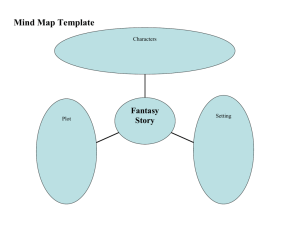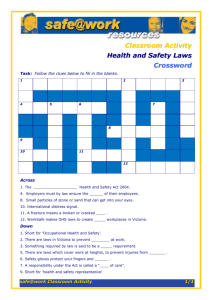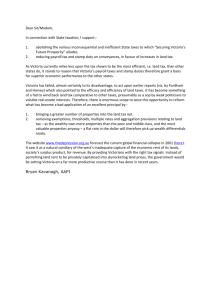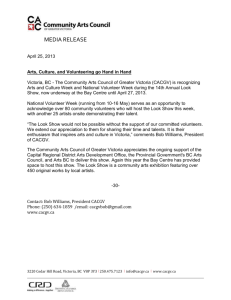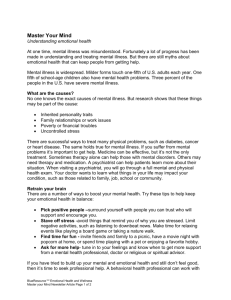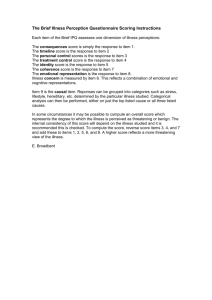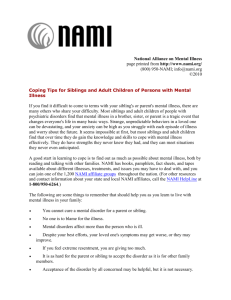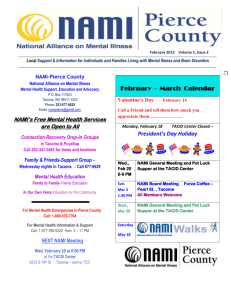An account of hallucinations and delusions
advertisement
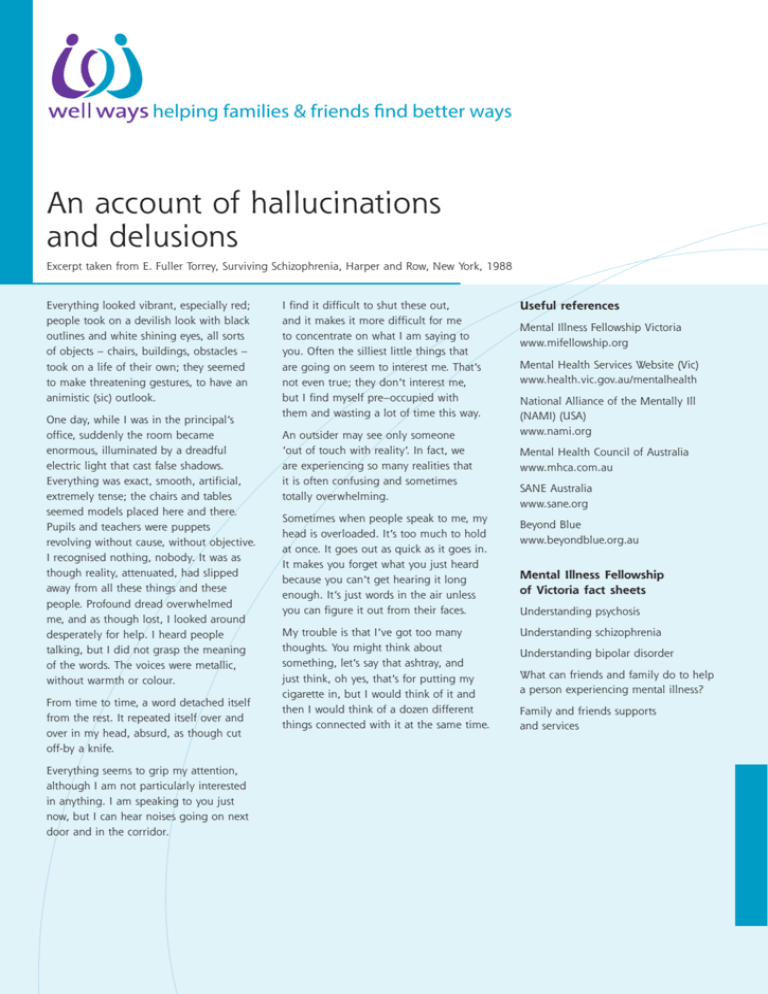
helping families & friends find better ways An account of hallucinations and delusions Excerpt taken from E. Fuller Torrey, Surviving Schizophrenia, Harper and Row, New York, 1988 Everything looked vibrant, especially red; people took on a devilish look with black outlines and white shining eyes, all sorts of objects – chairs, buildings, obstacles – took on a life of their own; they seemed to make threatening gestures, to have an animistic (sic) outlook. One day, while I was in the principal’s office, suddenly the room became enormous, illuminated by a dreadful electric light that cast false shadows. Everything was exact, smooth, artificial, extremely tense; the chairs and tables seemed models placed here and there. Pupils and teachers were puppets revolving without cause, without objective. I recognised nothing, nobody. It was as though reality, attenuated, had slipped away from all these things and these people. Profound dread overwhelmed me, and as though lost, I looked around desperately for help. I heard people talking, but I did not grasp the meaning of the words. The voices were metallic, without warmth or colour. From time to time, a word detached itself from the rest. It repeated itself over and over in my head, absurd, as though cut off-by a knife. Everything seems to grip my attention, although I am not particularly interested in anything. I am speaking to you just now, but I can hear noises going on next door and in the corridor. I find it difficult to shut these out, and it makes it more difficult for me to concentrate on what I am saying to you. Often the silliest little things that are going on seem to interest me. That’s not even true; they don’t interest me, but I find myself pre–occupied with them and wasting a lot of time this way. An outsider may see only someone ‘out of touch with reality’. In fact, we are experiencing so many realities that it is often confusing and sometimes totally overwhelming. Sometimes when people speak to me, my head is overloaded. It’s too much to hold at once. It goes out as quick as it goes in. It makes you forget what you just heard because you can’t get hearing it long enough. It’s just words in the air unless you can figure it out from their faces. My trouble is that I’ve got too many thoughts. You might think about something, let’s say that ashtray, and just think, oh yes, that’s for putting my cigarette in, but I would think of it and then I would think of a dozen different things connected with it at the same time. Useful references Mental Illness Fellowship Victoria www.mifellowship.org Mental Health Services Website (Vic) www.health.vic.gov.au/mentalhealth National Alliance of the Mentally Ill (NAMI) (USA) www.nami.org Mental Health Council of Australia www.mhca.com.au SANE Australia www.sane.org Beyond Blue www.beyondblue.org.au Mental Illness Fellowship of Victoria fact sheets Understanding psychosis Understanding schizophrenia Understanding bipolar disorder What can friends and family do to help a person experiencing mental illness? Family and friends supports and services MIFV2013/01 ©Mental Illness Fellowship Victoria 2013(ACN 093357165) PUBLISHED BY: Mental Illness Fellowship Victoria - for people with mental illness, their families and friends 276 Heidelberg Road Fairfield Victoria 3078 T: 03 8486 4200 F: 03 8486 4265 W: www.mifellowship.org ACN 093 357 165
